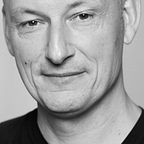Nocebo and treatment-resistant depression
Mental health experts from research, industry and regulatory agencies have proposed new criteria to define the type of depression that cannot be effectively treated with current medications and therapies.
The expert group’s report aims to provide consistent definitions for future research and, in particular, for the design of clinical trials for new drugs to support the development of more tailored and effective treatments for people with this challenging condition.
The report published in the journal Molecular Psychiatry is based on a well-known consensus-building method, the Delphi method. The Delphi method was used to collect and summarize the views of more than 60 experts in the field of depression. The report was led by researchers from the Institute of Psychiatry, Psychology & Neuroscience (IoPPN) at King’s College London and the National Institute for Health Research (NIHR) Maudsley Biomedical Research Centre.
Treatment-resistant depression (TRD) affects up to 30 percent of adults with major depressive disorder, which is characterized by persistent feelings of sadness and loss of interest and affects approximately 230 million people worldwide.
The term TRD is used to describe those people who do not respond to antidepressant treatment designated as appropriate at the present time. The problem: to date, there is no consensus on what is meant by “appropriate” treatment.
The experts’ report therefore strongly recommends that a clearer definition of TRD finally be established. Their proposal is to classify people as having TRD if they experience only a minimal reduction in symptoms (by 25% or less) after taking at least two different antidepressants. They also proposed making a distinction between TRD and partial-response depression (PRD), in which people with PRD have a 25% to 50% reduction in symptoms after taking at least one antidepressant. This distinction between these levels of treatment resistance will be useful, the authors believe, in determining who is eligible for specific trials and ultimately for targeted more personally directed treatments.
The study’s lead author, Professor Carmine Pariante of the IoPPN, said, “We are in a very exciting time for research and practice in treatment-resistant depression, with a number of innovative new approaches emerging, such as psychedelics, anti-inflammatory drugs, and brain stimulation techniques. We hope that our report will pave the way for the acceptance and implementation of a standard definition to ensure that these new therapies are effective in patients who are not currently helped by available antidepressants.”
The authors also discussed the assessment of depression and called for greater standardization and common practice in this area regarding the tools used to establish a diagnosis or assess change in depressive symptoms. They agreed that collection of biological data, such as blood samples and brain scans, should be done consistently to identify potential markers or metrics that could identify people with different forms of depression who may respond to different types of treatment.
Why is the nocebo effect not considered?
It is astonishing that, despite the high proportion of up to 30 percent of treatment-resistant depressions, the experts in their report make no mention whatsoever of the nocebo effect, which is now very well researched.
A nocebo effect occurs when a patient’s negative expectations of a treatment cause the treatment to have a more negative effect than it otherwise would have, due to a therapy, drug, or placebo. For example, if a patient expects a side effect from a drug, which may be a placebo, he or she may suffer that effect even if the substance administered can be shown not to have that effect. The complementary effect, the placebo effect, occurs when positive expectations improve an outcome. Both placebo and nocebo effects are thought to be psychogenic, but can produce measurable changes in the body. Nocebo effects may include nausea, abdominal pain, itching, bloating, depression, sleep problems, loss of appetite, sexual dysfunction, and severe hypotension.
A 2017 meta-study identified a rate of up to 31% for nocebo responses in pharmacologic treatment of persistent depressive disorder.
Anyone who wants to deal with the 30 percent of treatment-resistant depressions should therefore start here first and foremost, within the framework of holistic treatment approaches that deal more precisely with the patient’s existing negative expectations. A negative expectation can be unconscious and based on learning mechanisms such as older, even early childhood conditioning. A negative expectation can thus become a self-fulfilling prophecy, whereby (mis)diagnoses or detailed explanations of possible side effects can reinforce this effect.
First published on German on Medizindoc. This article is about a medical topic, a health issue or one or more medical conditions. This article is not intended for self-diagnosis and does not replace a diagnosis by a doctor.
